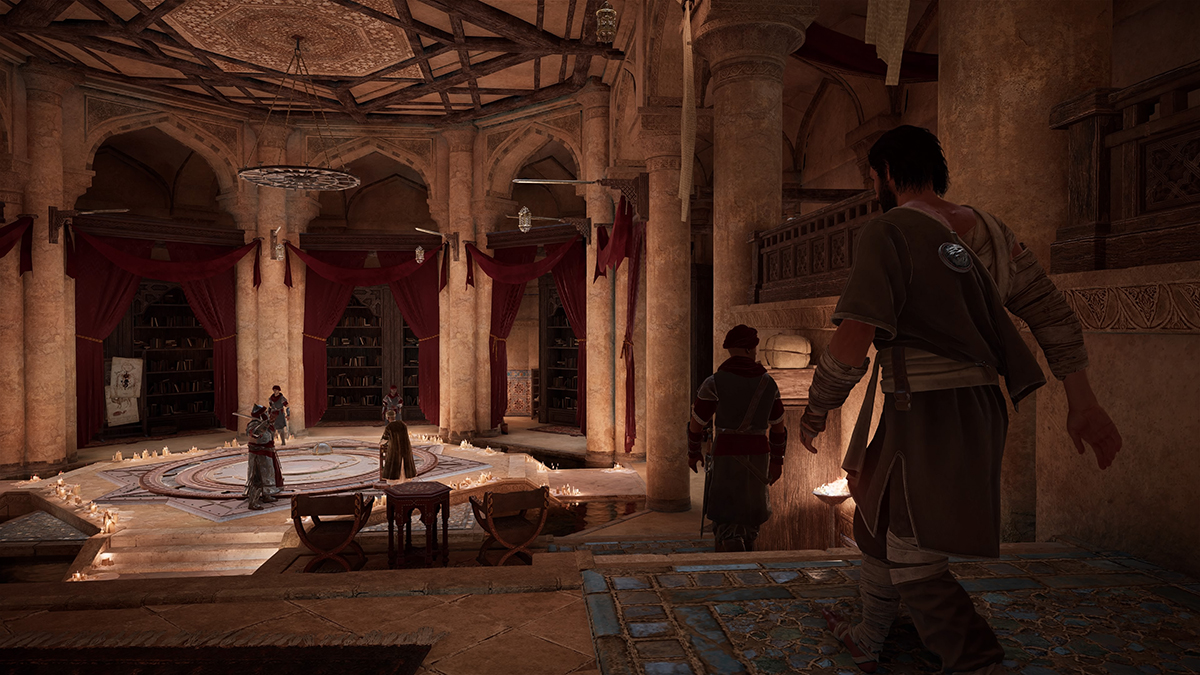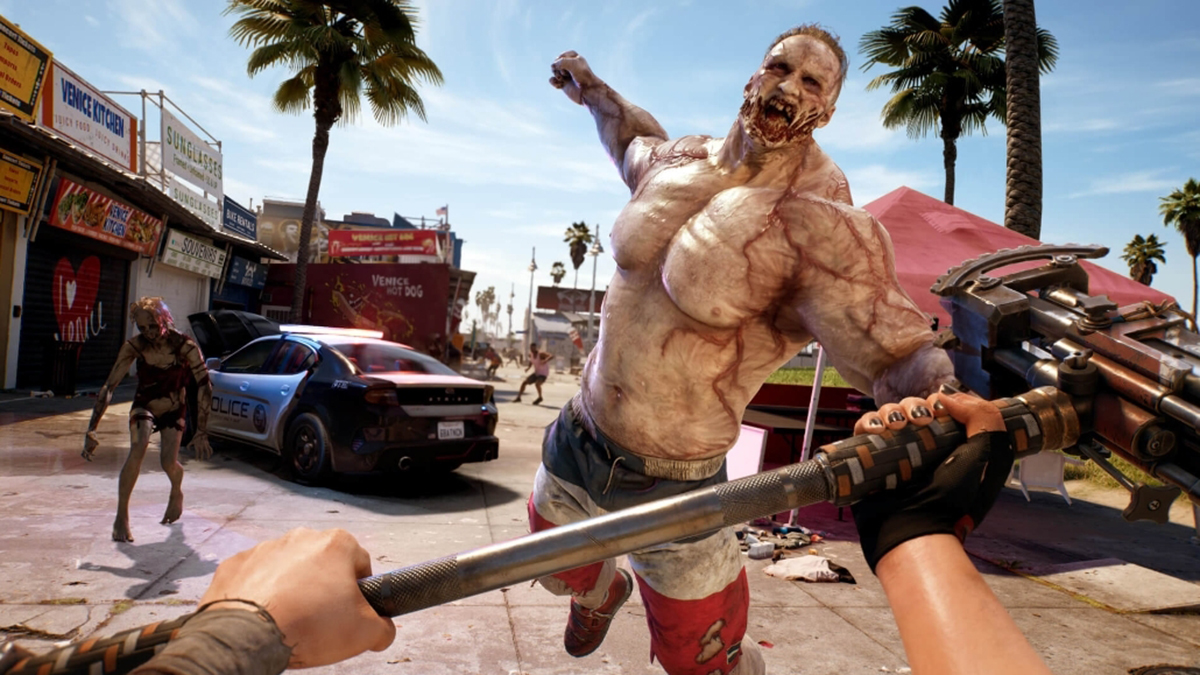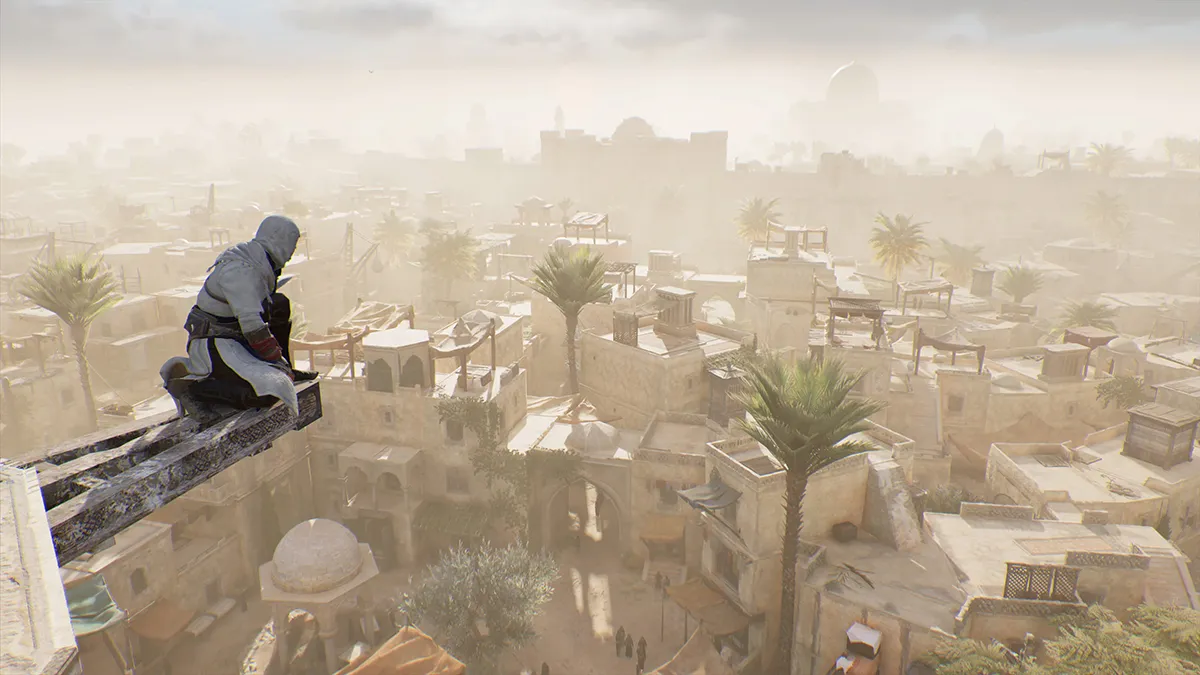Assassin’s Creed Mirage (AC Mirage) gets a lot of things right, but fans and critics alike are divided about whether it’s the dialed-down refresh Ubisoft was promising after a trio of AC releases that magnified the current “unfinishable open-world” issue that’s been the incredibly heated talk of town surrounding AAA games for the past few years. After a whole decade during which more was always better, it appears the mainstream has started asking for single-player games that can be beaten in a reasonable amount of hours.
Mind you, linear single-player experiences haven’t gone anywhere and can still sell plenty when they’re good and sport recognizable names, but we’ve been through a cycle of every big publisher trying to grab that sweet GTA and AC money (just two examples) and putting most of the huge budgets on projects that fit the bill. Of course, Assassin’s Creed can’t and won’t escape that structure, as it was there from very beginning, but a smaller, more focused iteration of modern AC was possible.
Related: Is Assassin’s Creed Mirage (AC Mirage) Worth Buying?

For the most part, Assassin’s Creed Mirage works as a new installment you can actually gulp down in three-to-four decent gaming sessions. In that way, it feels like a throwback to the early days of the franchise. But it’s very much not a straight-up recreation of that type of game. This is both good and bad. I’ve discussed in the past how I didn’t want AC Mirage to mindlessly imitate the dull structure and behavior of AC1, but the saga has plenty of evolutionary space between those early days and its current “gigantic action RPG” identity.
The thing about Mirage is that it succeeds at reintroducing stealth and notoriety systems while expanding on mechanics from the Altaïr, Ezio, and Connor installments. But at the same time, combat and much of how the (reasonably sized) world is built comes across as an obvious reduction of what Valhalla packed. To some extent, this makes sense, as AC Mirage was originally intended to be yet another major DLC for Valhalla.
But the moment it became a separate game and Ubisoft started marketing it as a “return to the basics”, folks started thinking of something else. The final result is a game that often feels like water and oil not mixing with each other, as the developers tried to put two wildly different approaches to the franchise in a blender and hoped for the best. While enjoyable, this isn’t the PS3/Xbox 360-era Assassin’s Creed homage that was repeatedly promised.
Related: When Assassin’s Creed Mirage Takes Place in the Timeline

By comparison, Dead Island 2 didn’t promise us much (mostly because its entire development had been a trainwreck to put it bluntly), but kinda came out of nowhere and delivered a tight and well-paced experience which truly felt like a PS3/360 game packing better tech and much-needed QoL changes. It barely did anything new, but it felt like a salve amidst a sea of huge releases. Funnily enough, the original vision for the troubled sequel was that of an open-world, but between all the road bumps and Dying Light doing that exact pitch two times and better, Dambuster Studios – the team which managed to ship the damn thing – made the right call and cut the experience into small (by today’s standards) zones.
Dead Island 2 doesn’t excel at invoking the aforementioned PS3/360 spirit just because it’s a sandbox which doesn’t cause anxiety. It’s also quite smart about matters such as character progression, weapon upgrades, and combat. They barely changed! And that’s great. One of the best things about the original Dead Island – which wasn’t great at all – was that it knew how to deliver no-BS action and gore without wasting the players’ time nor pushing them to grind.
On the other hand, it was reasonable to expect Assassin’s Creed Mirage to return to the old ways of counter-based, Arkham-like combat and straightforward upgrades in order to complete its illusion of “hey, you’re playing one of the old games”. But nope, it just behaves like the early hours of Valhalla when it comes to those systems. Combat works like Eivor’s early-game encounters for the entire game and upgrades still have that kind of RPG feeling to them… which isn’t fleshed out because “nope, we’re not making that kind of game.” There’s a lack of commitment to either vision, and it’s a bummer.

Dead Island 2 might have nailed its throwback of sorts by accident or as the direct result of time and budget constraints, but it ultimately feels genuine and cohesive. Assassin’s Creed Mirage dangles the carrot of pre-RPG entries in front of players for hours, but what you ultimately get is a snack-sized, watered-down dose of modern AC. It’s something I enjoyed well enough as a breather between September and October’s behemoths, and the lower price tag definitely helped, but I like my Assassin’s Creed better without identity crises, even if that means more headache-inducing maps and many numbers going up, thanks.






Published: Oct 20, 2023 03:25 pm